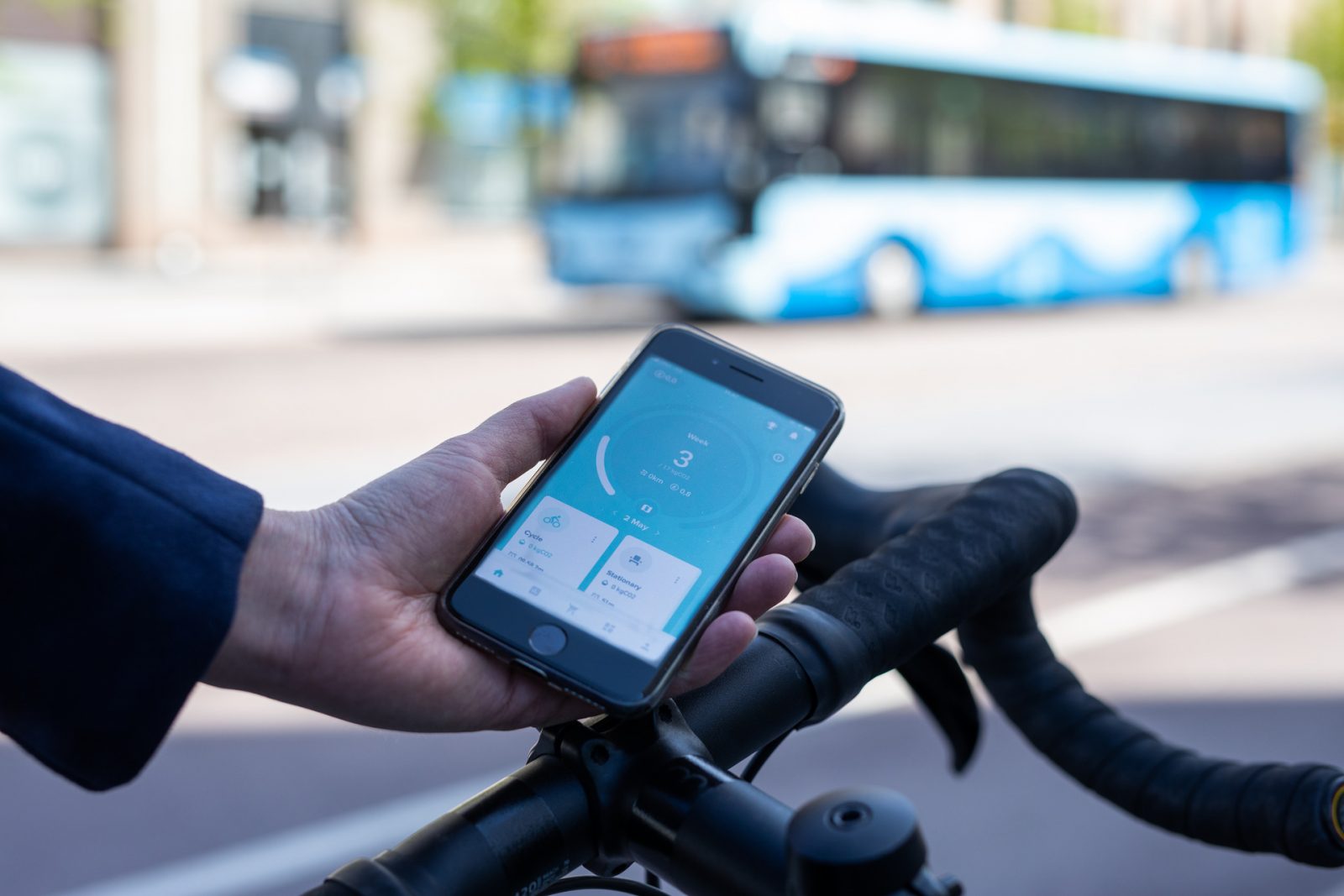The CitiCAP application and personal carbon trading of Lahti residents have been tested for just over a year. During this coronavirus spring, the application has provided valuable information on the change in mobility habits. In Lahti, the exceptional period is reflected in a decrease in car traffic and bus travel. The amount of car traffic dropped by around 30% and the number of passengers in bus transport within Lahti has decreased by almost 80%.
“Many people have learned new routines this spring, and this change can also be tracked and explored with the help of the CitiCAP application. If walking and cycling are used to replace driving, the application rewards the user with virtual euros. So carbon trading rewards you when emissions from mobility are low”, says the city’s Sustainable Mobility Project Manager Anna Huttunen.
Will users’ mobility decisions change?
The help of active testers has made it possible to develop the application and carbon trading system. The application works better all the time, but there are still growing pains, especially in the IoS version of the application. The aim of studying personal carbon trading is to monitor how the mobility and mobility choices of Lahti residents change in different situations. The research phase will last at least until the end of this year.
In carbon trading, a cap level has been created for emissions, and going below it earns you virtual money. The more sustainable forms of mobility you use, the more you earn. The money can be used, for example, to redeem bus tickets.
“The amount of virtual euros earned from saved emission allowances will change during the study, and we want to see how this affects mobility decisions”, says Assistant Professor Ville Uusitalo from the Lappeenranta-Lahti University of Technology.
“Using the carbon trading application and participating in the experiment is voluntary, but we would like as many people as possible to try and use the application in order to obtain the most comprehensive data possible for the research.”
During the research phase, surveys and interviews will be used to gather feedback and ideas about what is good and what is bad about personal carbon trading as well as how the system or its fairness could be further improved.
Lahti is the first city in the world where citizens’ personal carbon trading is being studied.
“Many European cities are interested in the project and Lahti has been recognised internationally as a pioneering city. The information collected from the application can be used in many ways to support urban planning as well”, Anna Huttunen says.
How to get involved?
Using the application does not require any special activity from the user, with mobility identification and carbon trading working automatically. The application is available for download on the marketplaces of Android and IoS phones, the App Store and Google Play.
Further information
Sustainable Mobility Project Manager Anna Huttunen, +358 44 4826 176, anna.huttunen@lahti.fi
Assistant Professor Ville Uusitalo, Lappeenranta-Lahti University of Technology, Sustainability Science, +358 40 5864486, ville.uusitalo@lut.fi
